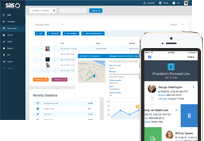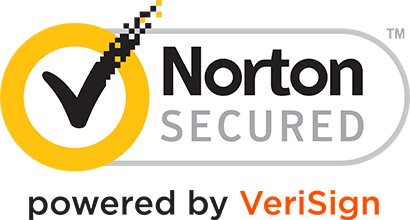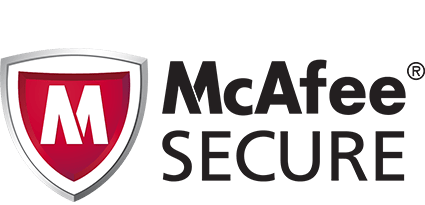- Log In
- Support
- Company
- Contact Us
- Live answers @ 1-888-532-4794
5 Easy Ways Medical Offices Can Improve Their Answering Service

How many times have you called your doctor’s office and knew right away that you were speaking with their answering service? From asking an excessive amount of questions to simply not handling the call correctly, there are a few ways the interaction can fall flat. If communication is being outsourced to an answering service, the transition should be seamless so that patients can’t even tell the difference.
Below we’ve outlined common call handling scenarios and broke them down into both good and bad practices so you know what to implement for your own answering service, and what to steer clear of.
#1. A Driving Initial Greeting
Good Practice: If you’re outsourcing, a good call handling practice is to ask a driving question up front to help steer the call. While asking “how may I help you?” would work in a regular office, it opens up a window for callers to start rambling.
A better approach is to ask a question like “are you calling to schedule an appointment?” or “is this an emergency?” so that your virtual receptionists can maintain control over the call. In addition, this approach also works to eliminate any excess talk time, which could eventually burn right through your wallet.
Bad Practice: Aside from asking a general “how may I help you?” to open the call, adding a lengthy, complicated greeting is also a recipe for disaster. For example: “Hello and thank you for calling the pediatric dental office of Dr. Lugiewicz, where we strive to make your child smile. How may I help you today?” is definitely something your answering service should not be saying.
If your service is strictly answering calls for your office only, then it may be fine to have them use that greeting. However, in most cases answering services answer for many different businesses, so they probably don’t have the time to perfect your greeting specifically. Not to mention it will also sound uber unprofessional when it inevitably gets botched.
Pro tip: If you do want your answering service to say a custom greeting, see if your service can add a custom recording that would play each time someone calls. That way you can eliminate the room for error and still make sure your callers know they have reached the right place.
#2. Multiple Call Paths
Good Practice: Another good call handling practice is to screen callers to see why they are calling, and handle accordingly. For example, existing patients may become frustrated if they have to provide the same information over and over again each time they call, like their date of birth, their insurance, their address, how they heard about you, etc.
Now, while a patient’s address or insurance may change from visit to visit, a good practice would just be to ask “has your address or insurance changed since the last time you’ve been here?” instead of asking “what is your address?” and “what is your insurance?” That way the caller can either reply “yes” or “no” and if “yes”, they can then proceed to provide their new information.
Bad Practice: Asking every single caller the exact same information is a surefire way to tick off your patients, especially if they’re having an emergency. Imagine if an OBGYN practice asked a woman in labor what her insurance is and how she heard about the practice when a baby is literally drop kicking it’s way out. You’d have one unhappy woman on your hands and probably some not so great reviews to deal with.
Having multiple call paths for your operators to choose from is the key to make everyone happy. Not only does it make for a better call experience for the patient, but it also makes it easier for the office staff to prioritize messages and return calls accordingly.
#3. Add FAQs
Good Practice: If your answering service isn’t able to answer basic questions, they’ll wind up spending more time taking messages, which means more time you have to spend calling people back. While all accounts should be programmed with basic FAQs, it’s good practice to include other frequently asked questions that are sure to come up. For example, you’d probably want to include things like:
- Insurance information: Do you accept insurance? What insurance do you accept? Can patients pay out of pocket?
- Key contacts: Who are the doctors at your practice? If your business name is similar to other medical offices, callers may be confused and may ask if they are calling Dr. Smith’s office.
- Location: Many medical offices have multiple locations, which would be important to include within your FAQs. It’s also helpful to add in recognizable landmarks surrounding your practice just in case callers are lost and need help finding your building.
- Services: Depending on the type of medical practice you run, you may offer different services. For example, a mental health clinic may offer counseling services, massage therapy services, hypnotherapy services, etc.
Bad Practice: Not adding any FAQs to your account is definitely a good way to set the operators, and your business, up for failure. Many times people call just to ask questions, so imagine how frustrating it would be to your callers when they can’t find their answer online, and they can’t get an answer from your business, either. A good answering service experience will leave the caller feeling like they got something accomplished.
Pro tip: Adding too many FAQs is also bad practice. While you want the operators to be able to answer questions, there are some things that are better left unsaid. At least, they’re better left unsaid by your answering service. So, make like Goldilocks and find the perfect balance.
#4. Take Advantage of Appointment Scheduling
Good Practice: You may be using an answering service to help schedule appointments. A good practice for scheduling appointments is to use a user-friendly scheduling platform that the virtual receptionists will have no problem accessing or scheduling on. Whether the software is accessed via your website, or it’s a shared platform like Google Calendar, the easier it is to use, the less problems you’ll encounter.
Pro tip: If your practice has multiple locations, you’ll want to set up calendars for each to avoid double booking. If you’re using your own calendar, you should implement a type of drop down that will allow the operators to select different locations.
Bad Practice: Most people are calling their doctors office to schedule an appointment. So, if you have a web based scheduling system and are not giving the answering service access to it, you’ll end up with angry patients. It can be very frustrating for a patient to take the time to call your office, only to be told they have to leave their information for a call back.
It also creates more work on your side, when you or your office staff have to call these people back to schedule them yourselves. Most answering services are capable of scheduling, so make your callers happy and take advantage of those features!
#5. Setup Emergency Dispatching
Good Practice: If you run a medical practice, you’ll definitely be receiving phone calls for emergencies. Whether little Timmy fell down the well and broke his arm, or little Suzie is breaking out in hives from eating too many cookies, there’s no telling what could come up. But, as a medical provider, you have to be prepared for it all, which means your answering service also needs to be prepared.
Setting up an on-call system is definitely a must. Often times patients or parents of patients will look for guidance from your office first before jumping the gun and going right to the emergency room. Something your callers could think is the worst of the worst may not be that bad, or they may put something really bad off when it actually should be dealt with right away. However, without a doctor to speak to after hours, they may not know! Your on-call system should be easy and straight forward so that your callers can be helped as soon as possible.
Bad Practice: For starters, not having an emergency dispatch protocol is the worst of all the bad practices fathomable. I don’t know how many times I’ve called my doctor after hours with questions or concerns and been left hanging (the answer is zero times, because my doctor knows the deal).
Assuming you do have an emergency protocol, don’t make it complicated. Complicated procedures lead to mistakes, mistakes lead to people not being taken care of, and people not being taken care of leads to no more business for you. So, set up a simple on-call procedure that is straightforward and everyone will be a-okay.
Categories
- Advice (32)
- Answering Service 101 (18)
- Best Practices (10)
- Call Center Jobs (6)
- Call Center Software (20)
- Comparison (2)
- Customer Service (30)
- Funny (31)
- Holidays (19)
- Industry Hacks (19)
- Infographics (53)
- International (1)
- Medical (8)
- News (12)
- Phone Etiquette (2)
- Phones (14)
- Pricing (8)
- Quizzes (3)
- Receptionist (11)
- SAS Products (29)
- Scripting (4)
- Services (5)
- Small Business (25)
- Starting Up (7)
- Tips and Tricks (19)
- Uncategorized (1)
- Videos (19)
- Workplace (6)
Recently writen
- Call Center Script Best Practices: Advanced Script Block Tips to Optimize Your Answering Service
- January 2025 Release Notes – Adjustments to Call Details Timeline, New Scripting Updates, Live Transcription, and more!
- April 2024 Release Notes – Voicemail Greetings, Ability to Access Websites With a Username and Password, and more!
- March 2024 Release Notes – New Add-On, Settings Revamp, and more!
Follow Us
How about a demo?
We'll show you how our web portal works and answer any questions you have about SAS.
Schedule a demo







